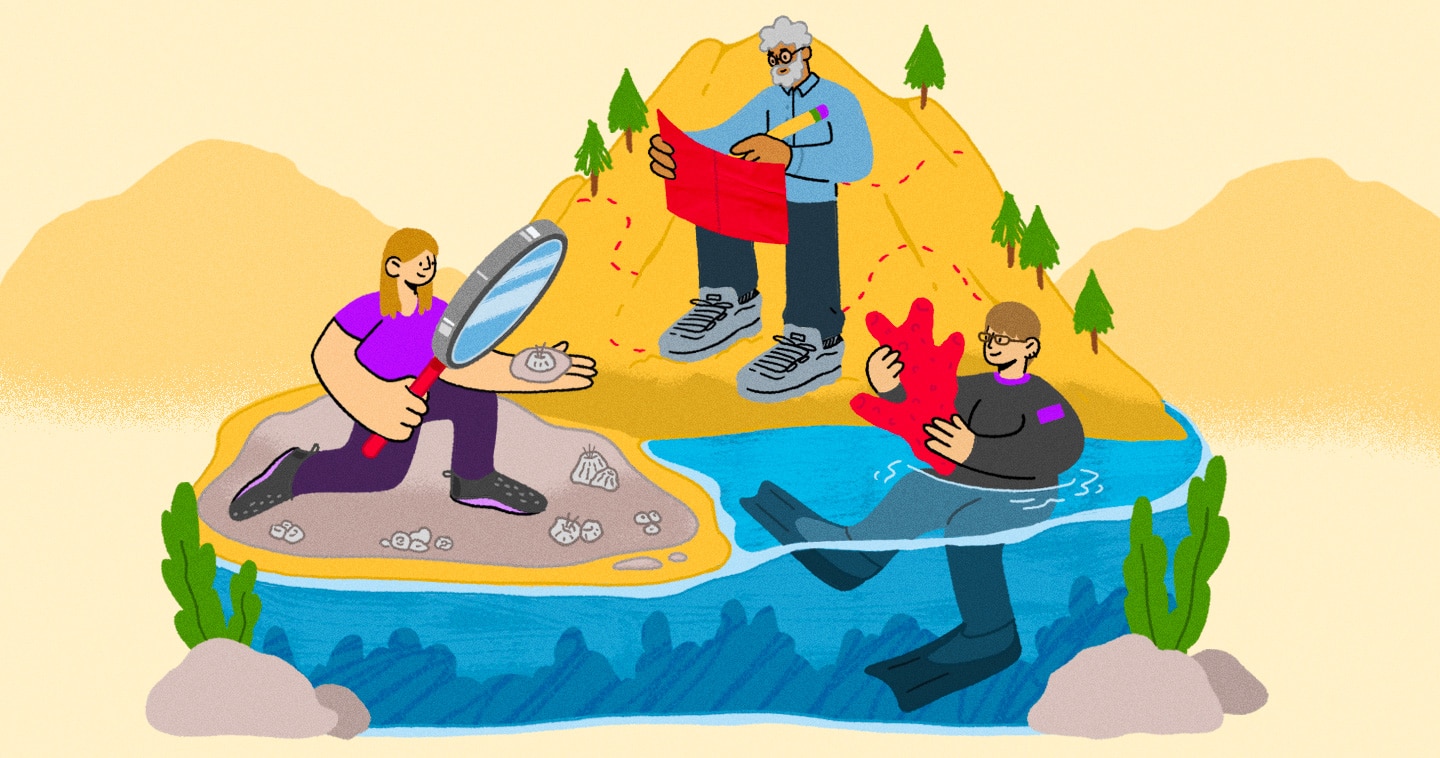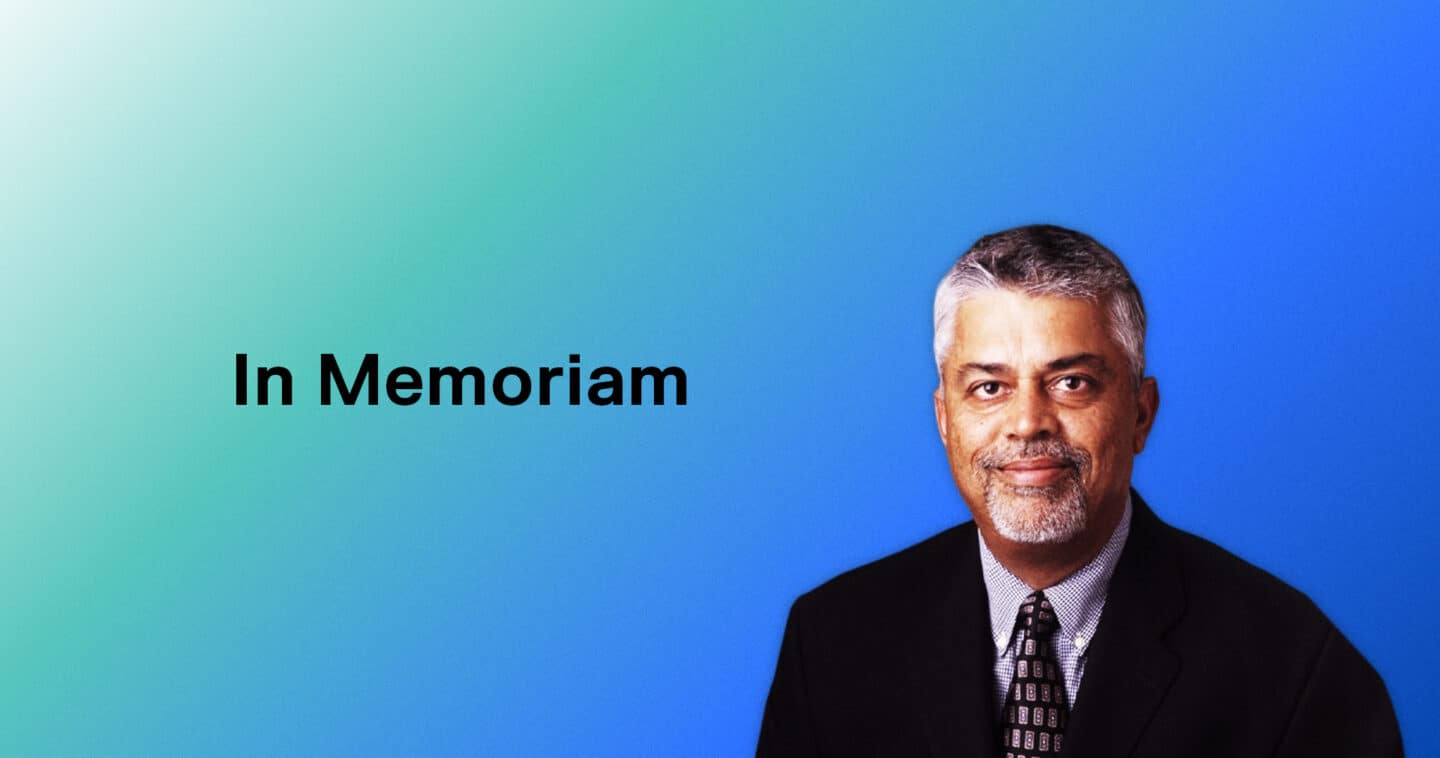Charting a More Inclusive Natural World
Wading into uncharted territory requires the tenacity to not only take that first step but to also self-advocate. Marine biologist Dr. Ruth Gates, evolutionary biologist Dr. Joan Roughgarden, and geologist Dr. Clyde Wahrhaftig are three LGBTQ+ scientists we’re celebrating this Pride Month who did just that, encouraging further research and representation in the natural sciences.
Dr. Ruth Gates
“You can achieve anything you want. It takes passion, grit, and perseverance.”
Dr. Ruth Gates was known by her wife for excelling at everything she put her mind to, and by most, for her passion for preserving coral reefs. Primarily growing up in Kent, England, Dr. Gates fell in love with marine biology watching the Undersea World of Jacques Cousteau. Her fascination with marine life led her to achieve bachelor’s and Ph.D. degrees in biology in 1984 and 1990 at Newcastle University.
Researching critical Caribbean coral sites just as many began to perish, Dr. Gates felt the urgency to reverse their fate. In her work on-site in Jamaica, at UCLA, and the University of Hawaii at Manoa, she studied how coral reefs deteriorate in the changing oceans—and how our ecosystem suffers as a consequence. The harmful impact of rising temperatures, ocean acidification, and pollution on fragile coral pushed Dr. Gates to promote the breeding of coral strains with greater genetic resilience.
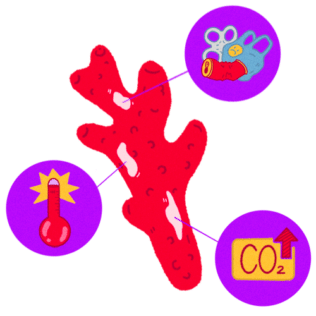
Dr. Gates sought to further educate and advocate for the protection and conservation of coral reefs, engaging with communities across the globe and appearing in documentaries such as Netflix’s Chasing Coral (2017). Dr. Gates passed away at the age of 56, but not before lending her buoyant narration to the immersive and interactive documentary Lost Cities (2018). In 2020, the National Oceanic and Atmospheric Association (NOAA) created the Ruth Gates Coral Restoration Innovation Grants competition in her memory, to support coral reef conservation and restoration.
Dr. Joan Roughgarden
“My overall conclusion is now that the more complex and sophisticated a social system is, the more likely it is to have homosexuality intermixed with heterosexuality.”
Dr. Joan Roughgarden equally embraces all aspects of her identity in her work: as a transgender woman, Episcopal Christian, ecologist, and evolutionary biologist. Her father’s work as a missionary construction engineer resulted in Roughgarden spending her formative years in the Philippines and Indonesia before eventually returning to her hometown in New Jersey. Initially encouraged to pursue medicine, Roughgarden double majored in biology and philosophy at the University of Rochester in 1968 before pivoting to a Ph.D. in biology at Harvard University in 1971.
Dr. Roughgarden split most of her ecology and evolutionary biology career writing and teaching. Using computational techniques in the field, she studied various animal species, such as lizards, fish, birds, and barnacles, to analyze their ecological behavior and sexual evolution. Roughgarden began lecturing at the University of Massachusetts, Boston, before becoming faculty in Stanford’s Department of Biology in 1972, where she founded and directed its Earth Systems Program. In her 2006 text Evolution and the Christian Faith, Roughgarden addressed two seemingly conflicting perspectives of her life, asserting how her faith reflects a contemporary evolutionary theory.
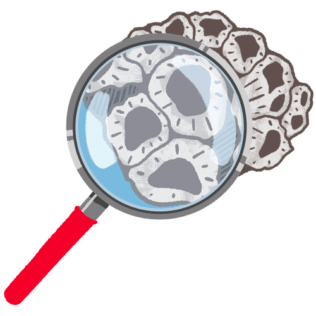
Challenging Charles Darwin’s famous evolutionary theories on sexual selection, Dr. Roughgarden proposed her own theories based on social cooperation. Her book Evolution’s Rainbow: Diversity, Gender, and Sexuality in Nature and People (2004) discusses diversity of gender and sexuality in humans and other species with complex societies. She won the Israel Fishman Non-fiction Stonewall Book award in 2005 and released a sequel, Genial Gene, in 2009.
Dr. Clyde Wahrhaftig
“I hope that… I contribute in some small way to the creation of a society with a sufficiently intelligent, open, and compassionate attitude toward sexuality.”
First and foremost a talented field scientist, Dr. Clyde Wahrhaftig delivered great care in all his passions, both professional and personal. He admitted he did not consider himself the best lecturer and instead instructed his students to thoroughly examine and explore the earth through their field studies. Wahrhaftig grew up in Fresno, CA, before receiving his bachelor’s degree in geology at the California Institute of Technology (Caltech) in 1941 and his Ph.D. in geology at Harvard University in 1953.
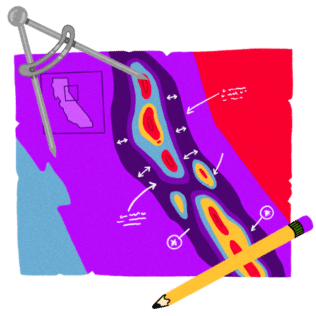
Dr. Wahrhatig worked most of his 50+ year career for the U.S. Geological Survey (USGS), surveying Alaskan and Californian areas, including Golden Gate National Recreation Area and Yosemite National Park. His notable contributions included mapping the Sierra Nevada Mountains for insights into its formation, investigating the San Andreas fault line to estimate earthquake risks, and surveying the Alaskan glaciers to understand effects of melting such as erosion and landslides.
Teaching at U.C. Berkeley for over two decades, Dr. Wahrhaftig encouraged inclusivity in the field, especially for female and minority students. An environmentalist, hiker, and nature lover to his very core, he opted to actively limit his own use of fossil fuels in his choice of transportation. Dr. Wahrhafitg received multiple awards from the Geological Society of America for his work, notably its Kirk Bryan Award in 1967 for his outstanding paper on the topography of the Sierra Nevadas and its Distinguished Career Award in 1989 for his tremendous fellowship with peers and students alike. Receiving the latter award, Wahrhaftig posthumously thanked his late partner, geophysicist Dr. Allan Cox, and expressed his heartfelt wish for greater inclusivity for LGBTQ+ individuals in geology.

